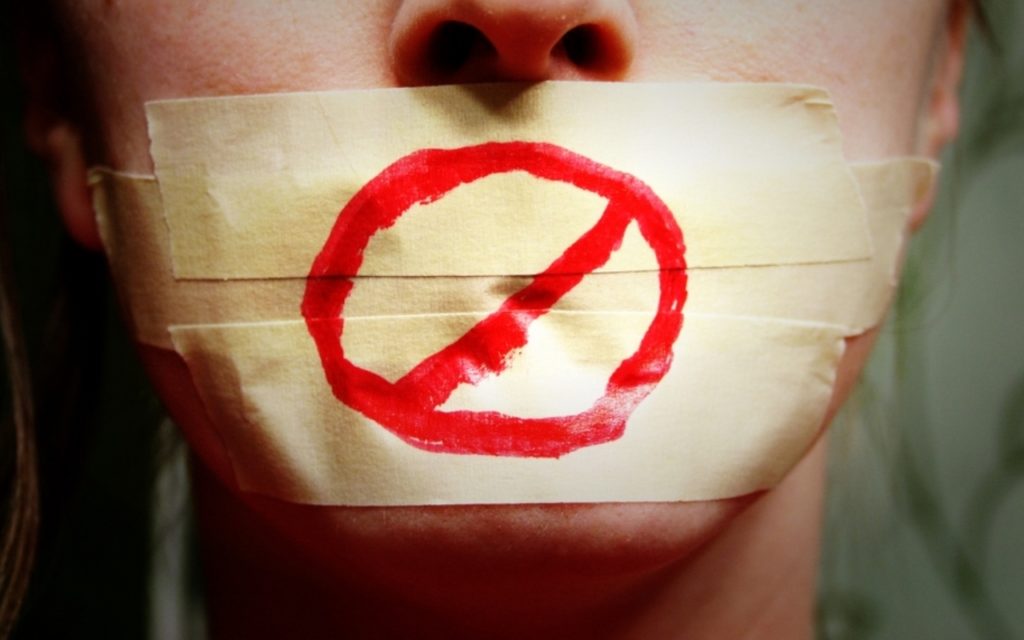In principle, most people around the world, and especially in the United States, support freedom of expression. But there is a fine line between general support for freedom of speech and support for specific forms of expression.
A new survey of people in 38 countries finds that for many provocative forms of speech, such as sexually explicit statements or calls for violent protests, most people draw a line between protected speech and speech that goes too far. And compared with the rest of the world, Americans generally are more accepting of free speech of any kind.
Criticizing government policies is the most accepted form of speech from our global poll, among the five statements that we tested. A median of eight-in-ten people across 38 countries say people should be able to express dissatisfaction with the government publicly. And about half or more in every country surveyed say this is acceptable. In many countries, people with a higher level of education are more likely than those with less education to support being able to criticize government policies in public.
But on most of the other statements tested, including speech that calls for violent protests, more oppose free public expression than those who support. Majorities in almost all the countries surveyed say the government should be able to prevent calls for violent protests. In the U.S., 44% support this kind of speech, while 51% support government restrictions on calls for protest. Support for this type of speech is highest in Poland (60%), possibly as a result of past protests against Soviet-controlled governments during the Cold War, although the Solidarity protests of the 1980s were largely peaceful.
Support for speech that is sexually explicit is also less accepted around the world. Majorities in most countries think the government should be able to restrict this type of speech. Only in Spain (70%), the U.S. (52%) and Poland (50%) do half or more support being able to say these things in public. However, young people are generally more accepting of this type of speech. In 16 of the 38 countries, 18- to 29-year-olds are more likely than those ages 50 and older to say that people should be able to make sexually explicit statements in public.
On other matters, such as saying things that are offensive to religion, there is also less support around the world. A median of only 35% across the nations surveyed say making public statements that might be offensive to their religion or beliefs is acceptable. And fewer than half in 24 countries say statements that are offensive to minority groups should be allowed publicly.
On the latter two questions, the U.S. stands out as one of the few pro-free speech exceptions, with two-thirds or more saying statements that are offensive to the respondent’s religion (77%) and minority groups (67%) are OK. But there is a racial divide, with nonwhite Americans (57%), including Hispanics, much less likely to agree that people should be able to say offensive things about minorities in public compared with white Americans (72%).






Comments